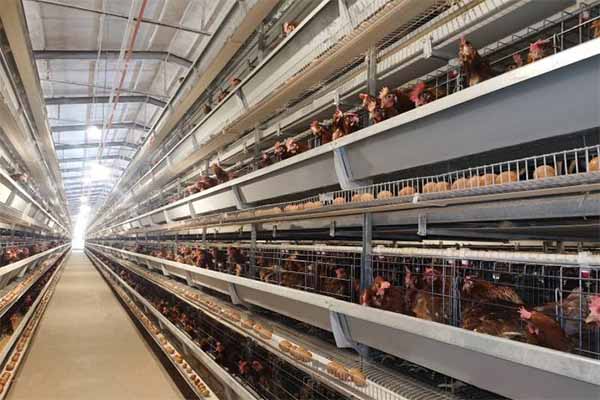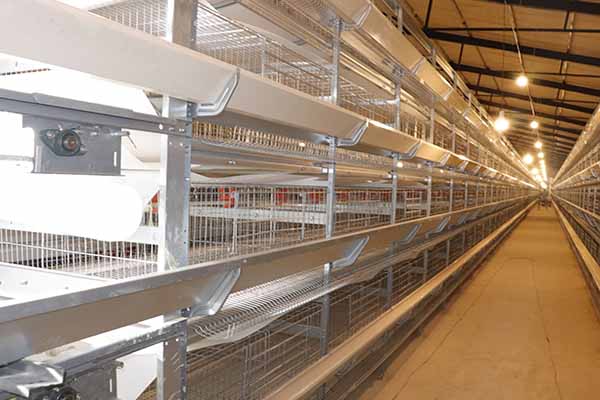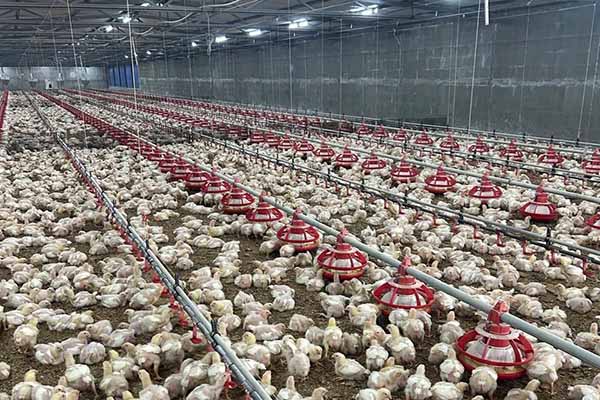Understanding the Cost of Starting a Poultry Farm in Ghana
Time : 2025-05-14
Starting a poultry farm in Ghana can be an exciting venture, but it’s crucial to understand the financial implications involved. In this article, we’ll break down the various costs associated with establishing a poultry farm in Ghana, providing you with a comprehensive guide to help you plan effectively.
Introduction to Poultry Farming in Ghana
Poultry farming is one of the fastest-growing sectors in Ghana’s agricultural industry. With a rising demand for poultry products, it’s no surprise that many entrepreneurs are looking to enter this market. However, before diving in, it’s essential to have a clear understanding of the costs involved.
Capital Investment for Starting a Poultry Farm in Ghana
The first and most significant expense is the capital investment. Here are the key components you need to consider:
1. Purchase of Land
Securing a piece of land is crucial for your poultry farm. The cost of land in Ghana varies greatly depending on location and size. In urban areas, it can be quite expensive, while in rural areas, it’s relatively more affordable. As a rough estimate, you might need anywhere from $5,000 to $20,000 for a suitable piece of land.
2. Construction of Poultry Houses
After acquiring the land, you’ll need to build or rent poultry houses. The cost of construction depends on the size, type, and quality of materials used. A basic poultry house for around 1,000 birds can cost between $10,000 and $20,000. However, if you opt for high-tech, environmentally friendly designs, the cost can be much higher.
3. Purchase of Broilers
Broilers are the main type of birds reared for meat production. The cost of broiler chicks varies based on the breed and supplier. On average, you can expect to pay about $0.50 to $1.00 per chick. For a farm starting with 1,000 birds, you might need to budget around $500 to $1,000 for the initial purchase.

4. Feed and Equipment
Feeding your birds is one of the biggest ongoing expenses. The cost of feed depends on the quality and quantity needed. On average, you might spend $10 to $15 per bird per month. Additionally, you’ll need to invest in feeders, waterers, and other equipment, which could cost between $500 and $1,500.
5. Labor and Management
Running a poultry farm requires a skilled workforce. You can hire permanent staff or work with contractors. The cost of labor varies depending on the region and experience required. For a small-scale farm, you might need to budget around $500 to $1,000 per month.
Operational Costs of a Poultry Farm in Ghana
After the initial investment, there are several operational costs to consider:

1.  Feed Costs
Feed Costs
As mentioned earlier, feed is one of the biggest expenses. The cost can vary based on market prices and the type of feed you choose. It’s important to source high-quality feed to ensure the health and productivity of your birds.
2. Veterinary Care
Regular veterinary care is essential to keep your birds healthy. This includes vaccinations, deworming, and treatment for any diseases. The cost of veterinary services can vary, but budgeting around $100 to $200 per month is a good starting point.
3. Utilities
Utilities such as electricity, water, and fuel are other ongoing expenses. The cost will depend on the size of your farm and the resources you use. Plan to allocate around $50 to $150 per month for these expenses.
4. Marketing and Sales
Marketing your poultry products is essential to ensure a steady flow of customers. The cost of marketing can vary greatly depending on the methods you choose. Budgeting between $100 and $500 per month is a reasonable estimate.
Financial Planning and Budgeting
When planning your poultry farm, it’s essential to create a detailed budget. Here are a few tips to help you get started:
- Estimate your total capital investment and break it down into smaller, manageable components.
- Develop a monthly operating budget that accounts for all ongoing expenses.
- Set aside a contingency fund for unexpected costs or losses.
- Seek financing options such as loans or grants if needed.
Conclusion
Starting a poultry farm in Ghana requires careful planning and budgeting. By understanding the costs involved, you can make informed decisions and increase your chances of success. Remember to consider both the initial investment and ongoing operational expenses, and always have a contingency plan in place.
For those considering entering the poultry farming industry in Ghana, we hope this guide has provided you with valuable insights. If you have any further questions or need assistance, don’t hesitate to reach out to experts in the field.











